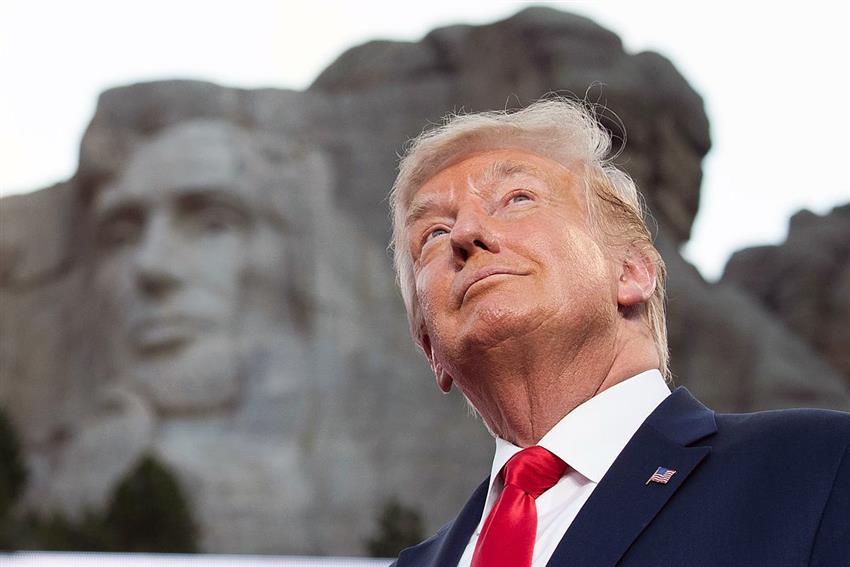
First, let’s examine the meaning of the suffix: ‘ism’. Wikipedia says it means
“taking side with" or
"imitation of", and is often used in association with philosophies, theories, religions, social and artistic movements, and behaviours.
So let’s use that suffix with Trump:
Trumpism, although he hardly deserves the use of a suffix so commonly attached to movements of significance.
We have often asserted that Donald Trump is mad. We still do, even more emphatically since the US elections.Those of you who are Trump fans who feel that this is impertinent, will not be pleased with what follows. You may wish to stop reading now. Alternatively, you may care to review your attitude after re-examining his behaviour during and following the recent US Election.
His continuing insistence that he won the election despite the incontrovertible evidence that he lost it, evidence accepted by observers around the world, should cause you to revise your opinion. His refusal to concede is based on fantasy, not facts. The only facts he accepts are his own, those he creates to suit his purpose.. Nothing will change that because he suffers from advanced narcissistic personality disorder.
Eventually he will be removed from the White House. At the time of writing, Trump is still holed up there, still claiming he won, and refusing to hand on important documents of state to his successor.
Some believe he will be removed with great difficulty and that he will attempt, figuratively, to wreck the place on the way out.
It is expected that his behaviour will continue, without power, so we may now be subject to what has attracted the label: ‘Trumpism’. So what is it? What do you think of this?
First, take a look at this extract from
The Diagnostic and Statistical Manual of Mental Disorders, Fifth Edition (DSM-5, 2013) which indicates that a person with narcissistic personality disorder possesses at least five of the following nine criteria, typically without possessing the commensurate personal qualities or accomplishments for which they demand respect and status:
- Has a grandiose sense of self-importance (e.g. exaggerates achievements and talents, expects to be recognised as superior without commensurate achievements)
- Is preoccupied with fantasies of unlimited success, power, brilliance, beauty, or ideal love
- Believes that they are "special" and unique and can only be understood by, or should associate with, other special or high-status people (or institutions)
- Requires excessive admiration
- Has a sense of entitlement (i.e., unreasonable expectations of especially favourable treatment or automatic compliance with their expectations)
- Is interpersonally exploitative (i.e., takes advantage of others to achieve their own ends)
- Lacks empathy: is unwilling to recognise or identify with the feelings and needs of others
- Is often envious of others or believes that others are envious of them
- Shows arrogant, haughty behaviours or attitudes.
So in brief, Trumpism could be described as including the following:
- A grandiose sense of self-importance
- A belief of being special, unique, brilliant and successful
- A profound sense of rightness
- A fantasy that preferred ‘facts’ are true
- A need for excessive admiration
- A sense of entitlement
- Exploitative behaviour
- Lack of empathy
- Envy of others
- Arrogant, haughty behaviours and attitudes.
What do you think?
Current rating: 5 / 5 | Rated 26 times